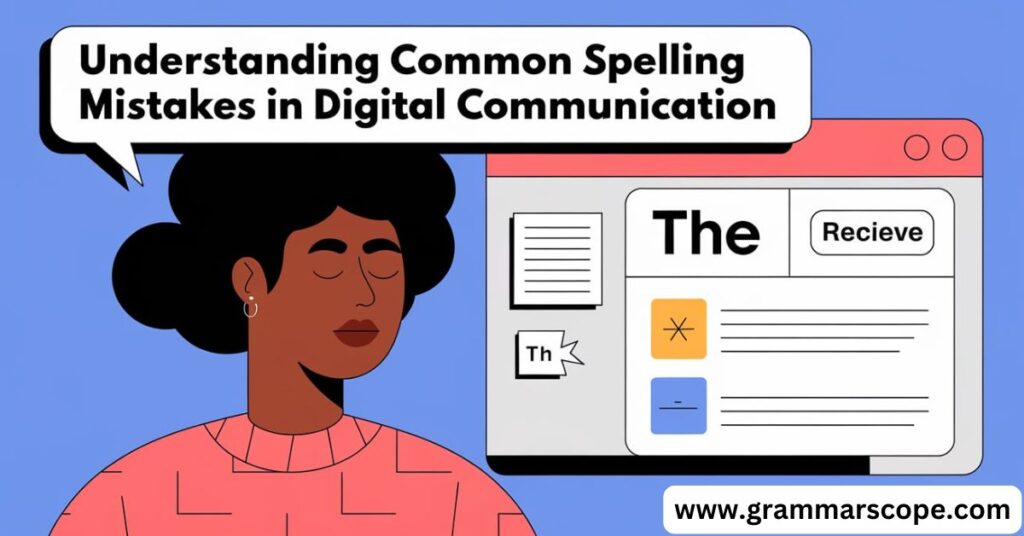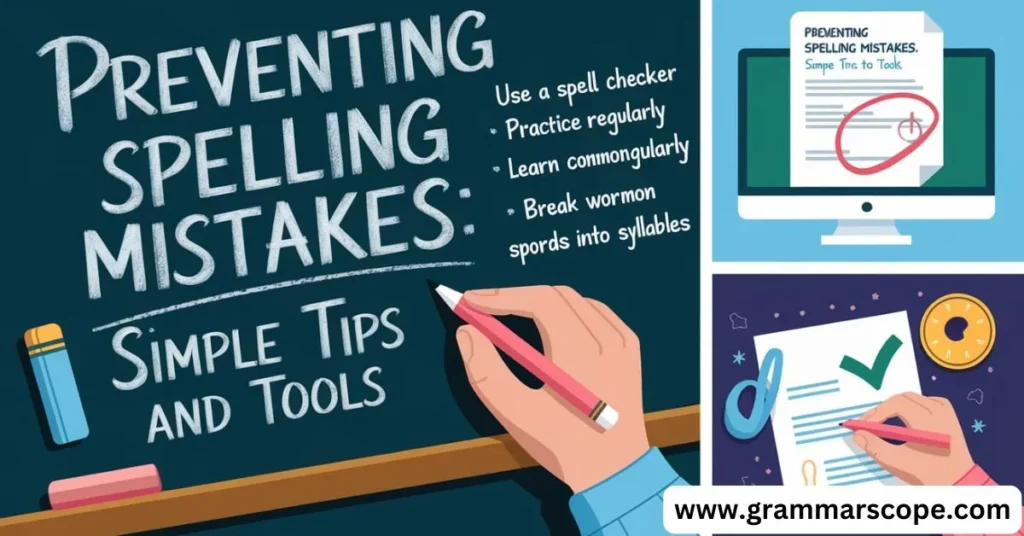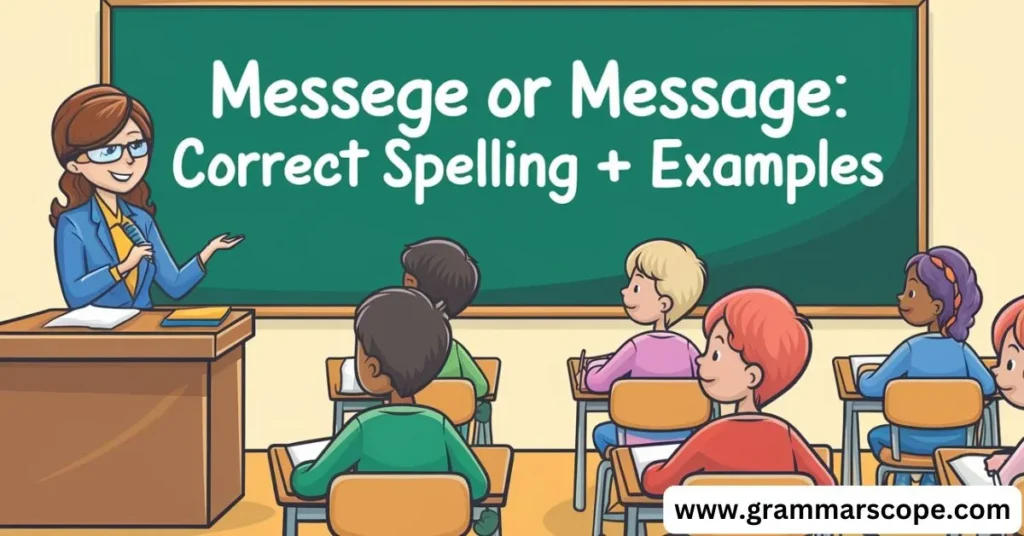In the world of professional communication, precision is key. Whether you’re sending a casual text or drafting an important email, even small errors can have a significant impact on how your message is received. Among the most common mistakes is the misspelling of the word “message” as “messege.” While the difference is just one letter, the consequences can ripple through both personal and professional contexts.
In this article, we’ll explore why spelling accuracy matters, how to avoid spelling mistakes, and real-life scenarios that illustrate the importance of getting it right.
Imagine this scenario: You’re emailing a client about an exciting new proposal. You double-check the figures, ensure the tone is polite yet assertive, and hit send. Later, you realize that you wrote, “Please review the attached document and reply with your thoughts on the messege.” Suddenly, the focus shifts from your brilliant idea to the glaring typo. This small error might seem insignificant, but it can subtly undermine your writing professionalism and leave a lasting impression on the recipient.
What is the Correct Spelling: “Message” or “Messege”?
The correct spelling is “message.” The word “messege” does not exist in standard English dictionaries and is considered a typographical or phonetic error. Message refers to a piece of communication conveyed through speech, writing, or other mediums. Miswriting it as “messege” can arise from habits, lack of proofreading tips, or misunderstandings about its pronunciation.
Scenario Example:
- Email: “Dear Alex, I’ve sent you the project details. Please check the messege and let me know your thoughts.”
- Impact: The client may question your attention to detail.
- Correct Email: “Dear Alex, I’ve sent you the project details. Please check the message and let me know your thoughts.”
- Impact: Maintains professionalism and ensures clarity.
Understanding Common Spelling Mistakes in Digital Communication

Digital communication platforms like emails, texts, and social media encourage speed over accuracy. This often results in spelling mistakes, including “messege” instead of “message.” Here are common factors contributing to these errors:
- Fast Typing: Speeding through text without reviewing it can lead to typos.
- Predictive Text and Autocorrect Errors: Modern tools are helpful but not foolproof. Autocorrect might not flag “messege” as incorrect.
- Phonetic Confusion: Words that sound similar can be easily misspelled when their spelling isn’t internalized.
Scenario Example:
- Text Message: “Hey Jamie, did you get my messege about the meeting?”
- Impact: While informal, repeated errors can diminish your credibility.
- Correct Text: “Hey Jamie, did you get my message about the meeting?”
- Impact: Professionalism shines through even in casual communication.
The Impact of Misspelled Words on Professionalism
Misspelled words, like “messege,” can erode trust and make you appear careless. In professional communication, the stakes are even higher. Whether it’s a business proposal, a job application, or an email to a supervisor, ensuring spelling accuracy is critical.
Why Spelling Matters:
- Attention to Detail: Small errors signal a lack of thoroughness.
- Credibility: Repeated mistakes can reduce trust in your expertise.
- Clarity: Misspelled words can confuse readers and dilute the impact of your message.
Pro Tip:
The paragraph discussing the impact of misspelled words on professionalism is the most vital in this article. Use it to drive home the importance of writing professionalism and the subtle ways errors can harm your reputation. Combine it with actionable tips, such as always proofreading and using tools like Grammarly.
Scenario Example:
- Incorrect Example: Subject: Marketing Proposal Update
“Dear Mrs. Johnson, I’ve attached the proposal and included a brief overview in the messege below. Please review and provide feedback.” - Correct Example: Subject: Marketing Proposal Update
“Dear Mrs. Johnson, I’ve attached the proposal and included a brief overview in the message below. Please review and provide feedback.”
Why Does “Messege” Keep Appearing?
Understanding why “messege” persists can help you avoid this common error. Below are the key reasons:
1. Phonetic Confusion
The word “message” has a soft “s” sound, leading some to mistakenly double the “s.”
- Example: Pronouncing “message” as “messege” influences how it’s typed.
2. Autocorrect Errors
Autocorrect tools may not recognize “messege” as a mistake. This is particularly common in text messaging apps or when typing quickly on mobile devices.
- Example: Relying solely on autocorrect without manual proofreading tips leaves room for errors.
3. Typing Errors
Fast typing and distractions often result in simple mistakes.
- Example: Writing emails during meetings or multitasking can cause errors like “messege.”
Preventing Spelling Mistakes: Simple Tips and Tools

Avoiding errors like “messege” is easier than you think. Here’s how to improve your language skills and ensure spelling accuracy:
1. Proofread Your Work
Before sending any communication, take a moment to review it. Reading aloud can help spot errors that might be missed otherwise.
- Tip: Focus on commonly misspelled words such as “message vs messege.”
2. Use Autocorrect and Spell Check
While not perfect, tools like Grammarly and built-in spell checkers are invaluable for catching common spelling errors.
- Tip: Always manually review flagged errors to ensure context is correct.
3. Learn Commonly Confused Words
Familiarize yourself with commonly confused words to avoid mistakes.
- Example:Message vs. Massage
- Message: A communication.
- Massage: A physical therapy technique.
Scenario Example:
- Checklist Email:
- Incorrect: “Let me know if you have questions about the messege.”
- Correct: “Let me know if you have questions about the message.”
Common Misspellings and Their Impact on Professional Writing
Below is a quick comparison of common spelling errors, their correct forms, and their potential impact:
| Misspelled Word | Correct Spelling | Impact | Example Sentence |
|---|---|---|---|
| Messege | Message | Reduces professionalism | “I left you a messege.” |
| Definately | Definitely | Indicates a lack of attention | “I will definately be there.” |
| Seperately | Separately | May confuse the reader | “We’ll discuss this seperately.” |
| Acount | Account | Diminishes credibility | “Check your acount for details.” |
| Alot | A lot | Appears informal and careless | “I appreciate it alot.” |
Frequently Asked Question
How do you spell message as in text?
The correct spelling is “message” when referring to a text or communication.
Is message grammatically correct?
Yes, “message” is grammatically correct when used appropriately as a noun or verb in a sentence.
- As a noun: It refers to a communication or information conveyed.
Example: “I sent her a message about the meeting.” - As a verb: It means to send a communication.
Example: “I’ll message you the details later.”
Always ensure the context matches the intended meaning.
What’s the difference between a massage and a message?
The difference between massage and message lies in their meanings and usage:
- Massage:
- Refers to the act of rubbing and kneading the body to relax muscles, relieve tension, or improve circulation.
- Example: “I booked a massage at the spa to relax after a long week.”
- Message:
- Refers to a piece of communication or information sent from one person to another.
- Example: “I left you a message about tomorrow’s meeting.”
Key Tip:
- Massage is about physical therapy.
- Message is about communication.
How do you spell message for your body?
The word for your body is spelled “massage”. It refers to the act of rubbing and kneading muscles to relax and relieve tension.
What is the real spelling of message?
The correct and real spelling is “message”. It refers to a piece of communication sent from one person to another, such as a text, email, or verbal information.
Conclusion
In conclusion, the difference between “messege” and “message” might seem minor, but its impact on professional communication is substantial. By prioritizing spelling accuracy and mastering proofreading tips, you can avoid common typos and ensure your writing reflects the professionalism you aim to convey.
Remember, every detail matters in communication, and even a single error can shape how your message is perceived. Always strive for clarity, precision, and confidence in your writing your reputation depends on it.

Emma Olivia is an experienced blogger and the creative mind behind Grammar Scope. With a passion for language and years of writing expertise, she crafts engaging, informative content that simplifies grammar and writing tips for readers worldwide. Emma’s dedication to clear communication and love for the written word shine through every article she publishes, making Grammar Scope a trusted resource for language enthusiasts and learners alike.







